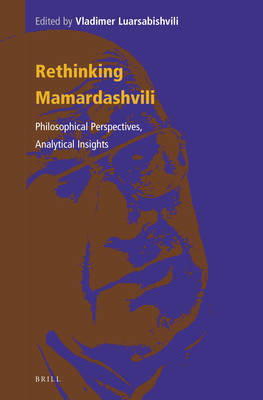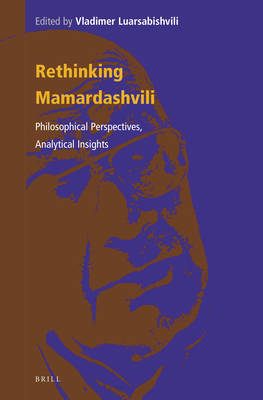
- Afhalen na 1 uur in een winkel met voorraad
- Gratis thuislevering in België vanaf € 30
- Ruim aanbod met 7 miljoen producten
- Afhalen na 1 uur in een winkel met voorraad
- Gratis thuislevering in België vanaf € 30
- Ruim aanbod met 7 miljoen producten
Rethinking Mamardashvili: Philosophical Perspectives, Analytical Insights
€ 218,45
+ 436 punten
Omschrijving
This book intends to present Mamardashvili's philosophical perspective on modern society by exemplifying in different ways its distinctive contribution to the greater philosophical landscape. The authors aim to define both Mamardashvili's place in the history of philosophy--among the currents of twentieth-century European thought and, in particular, phenomenology--and his relations with authors like Hegel, Proust, Deleuze, and Wittgenstein, while identifying the basic methodological instruments and substantive concepts of his thought--language, migration, citizenship, or "the freedom of complaint." The volume will be useful both for preparatory courses (by supplying an introduction to Mamardashvili's thought and forming the key necessary concepts) and for advanced research exigencies, allowing a professional audience to discover the remarkable insights of Mamardashvili's philosophy.
Specificaties
Betrokkenen
- Uitgeverij:
Inhoud
- Aantal bladzijden:
- 200
- Taal:
- Engels
- Reeks:
- Reeksnummer:
- nr. 3
Eigenschappen
- Productcode (EAN):
- 9789004517639
- Verschijningsdatum:
- 17/06/2022
- Uitvoering:
- Hardcover
- Formaat:
- Genaaid
- Afmetingen:
- 155 mm x 235 mm
- Gewicht:
- 457 g

Alleen bij Standaard Boekhandel
+ 436 punten op je klantenkaart van Standaard Boekhandel
Beoordelingen
We publiceren alleen reviews die voldoen aan de voorwaarden voor reviews. Bekijk onze voorwaarden voor reviews.









